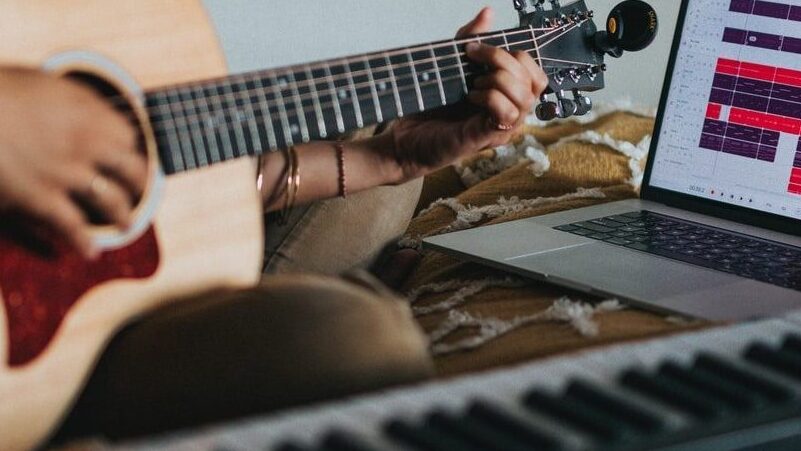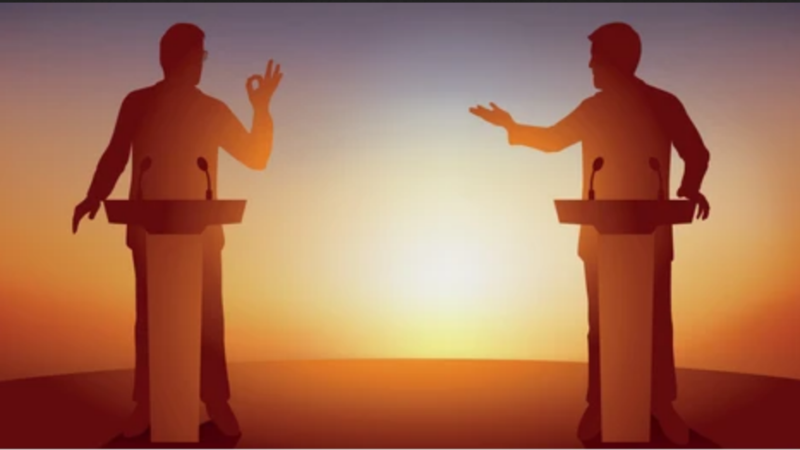How To Truly Earn From Song Covers (Even Without Monetization Schemes)

While plenty of the guides about making money with song covers online are very doable, they don’t really explain much about the legal aspects of the process. They don’t also explain the other options to explore aside from YouTube, as well as the other crucial details for making real earnings with it.
In this discussion, let’s answer the question about how to truly make money with song covers on the web.
What you’ll learn here:
- Why You Should Consider Doing Song Covers
- What You’ll Suffer For Not Licensing Your Song Covers
- Steps You Must Do For Song Licensing
- Online Companies For Licensing Songs
- How You Can Earn From Doing Song Covers
- Platforms For Doing Song Covers (Aside From Youtube)
- Making Money From Song Covers Without Monetization
Why You Should Consider Doing Song Covers
Song covers are an ideal side hustle because they offer the opportunity to earn money online while doing something you enjoy. They require minimal investment in equipment or studio time and provide access to a large audience through video streaming sites and social media.
If you’re a passionate musician or singer, doing song covers can be a compelling way to earn money online while doing something you love.
Let’s delve into the reasons why you should thread into this path:
Access to a large audience: When you cover popular songs, you have the opportunity to tap into an existing fanbase and reach a larger audience than you might otherwise. This can help you gain viewership and increase your exposure as an artist.
Low startup costs: Unlike many other creative endeavors, doing song covers requires minimal investment in equipment or studio time. All you really need is a microphone, a recording device, and some basic editing software.
Flexibility and creative freedom: When you do song covers, you have the freedom to put your own spin on existing songs and experiment with different styles and arrangements. This can be a fun and rewarding creative outlet.
Multiple revenue streams: There are many ways to earn money from doing song covers, including YouTube monetization, streaming royalties, digital downloads, and live performances. By diversifying your revenue streams, you can increase your earning potential and build a sustainable career as an artist.
Overall, doing song covers can be a fun and rewarding way to earn money online while building your skills and growing your fanbase. If you’re passionate about music and willing to put in the work, it’s definitely worth considering as a way to pursue your creative and financial goals.
What You’ll Suffer For Not Licensing Your Song Covers
Licensing song covers is important because it ensures that the original copyright holder of the song is compensated for the use of their work and that the cover artist has legal permission to use and distribute the song. Without proper licensing, you as a cover artist could face legal consequences such as fines or takedown notices and may miss out on potential revenue opportunities. Additionally, licensing ensures that credit is given to the original songwriter, and helps to protect the integrity of the music industry.
If you don’t obtain the necessary licenses for doing song covers, you may face several potential consequences, including:
Legal action: If you use copyrighted material without permission, the copyright holder may choose to take legal action against you. This can result in fines, damages, and other legal penalties.
Takedown notices: If you post a cover song without the appropriate licenses, you may receive a takedown notice from the copyright holder or a digital platform like YouTube or SoundCloud. This could result in your video or audio being removed from the platform, and potentially even your account being suspended or terminated.
Damage to your reputation: If you’re caught using copyrighted material without permission, it could damage your reputation as an artist or content creator. This could make it more difficult to establish yourself in the industry and attract fans and followers.
Missed revenue opportunities: By not obtaining licenses for your cover songs, you may miss out on potential revenue opportunities, such as monetizing your YouTube channel or selling digital downloads of your covers.
Steps You Must Do For Song Licensing
Here are the general steps involved in this process:
Identify the copyright holder: The first step in licensing a song for cover purposes is to identify the copyright holder, which may be the songwriter, the publisher, or the record label. You can usually find this information through online databases like ASCAP or BMI, or by contacting the relevant music licensing organization.
Obtain a mechanical license: A mechanical license is a legal permission to reproduce and distribute a copyrighted musical work. You can obtain a mechanical license from the copyright holder or a music licensing organization, such as the Harry Fox Agency or Easy Song Licensing. The cost of a mechanical license will vary depending on factors like the song’s popularity, the number of copies you plan to produce, and the length of the recording.
Pay royalties: In addition to the mechanical license fee, you’ll also need to pay royalties to the copyright holder for each copy of the cover song that you sell or distribute. The royalty rates will depend on the specific terms of the license, as well as any applicable laws or regulations.
Credit the original songwriter: When you release a cover song, it’s important to credit the original songwriter and include any relevant copyright information. This can help avoid any legal issues and ensure that the original artist receives proper recognition and compensation.
Licensing songs for cover purposes can be a complex process, and it’s important to do your research and ensure that you’re following all legal requirements and paying the appropriate fees and royalties.
Online Companies For Licensing Songs
To get the song licenses you need, you can reach out to the artists themselves, or you could call the record labels that own them. But this could be a pointless task since you’ll be most likely ignored. There are online companies you can reach out to though, that can still get the job done. Here are some of them:
Loudr: is a music licensing company that provides a platform for artists and businesses to legally distribute and monetize their cover songs. They offer mechanical licenses for digital downloads, CDs, and vinyl, as well as synchronization licenses for use in film, TV, and other media. They also offer a distribution service for artists to sell their covers on platforms like iTunes and Amazon.
Easy Song Licensing: a company that specializes in obtaining mechanical licenses for cover songs. They offer a range of licensing options for different types of uses, such as streaming, digital downloads, and physical copies. They also provide a service for artists to get their covers listed on digital platforms like Spotify and Apple Music.
Harry Fox Agency: a music licensing organization that provides mechanical licenses for cover songs in the United States. They work with over 48,000 music publishers to provide licenses for a wide range of musical works. They also offer an online licensing service called Songfile, which allows artists to easily obtain mechanical licenses for digital downloads and physical copies.
These companies can be a valuable resource for artists and businesses looking to license cover songs, as they can help navigate the complex legal requirements and ensure that all necessary licenses and royalties are obtained. It’s important to research and compare different licensing options to find the best fit for your needs and budget.
How You Can Earn From Doing Song Covers
The potential earnings for doing song covers can vary widely depending on several factors, including the popularity of the original song, the quality of the cover, and the size of your audience. Here are some ways that you can potentially earn money from doing song covers:
YouTube monetization: If you post cover songs on YouTube, you can monetize your videos through advertising revenue. This can be a significant source of income if you have a large and engaged audience.
Streaming royalties: If you release your covers on streaming platforms like Spotify, Apple Music, or Tidal, you can earn royalties for each stream. The amount you earn per stream will depend on the specific platform and your distribution agreement.
Digital downloads: You can also sell digital downloads of your covers on platforms like iTunes or Bandcamp. You’ll typically earn a percentage of the sale price for each download.
Live performances: If you perform cover songs live, you may be able to earn money from ticket sales or performance fees. This can be a particularly lucrative option if you have a strong local following.
You have to understand that the potential earnings from doing song covers can be highly variable, and there’s no guarantee of financial success. However, with hard work, talent, and strategic marketing, it’s possible to build a career as a cover artist and earn a substantial income.
Platforms For Doing Song Covers (Aside From Youtube)
Though YouTube is obviously the most obvious platform for doing song covers, you might want to consider other options just to break through the noise. There are several other ideal platforms for doing song covers aside from YouTube, including:
SoundCloud: SoundCloud is a popular platform for independent artists and creators to share their music. It’s free to use, and you can upload and share your cover songs with your followers. You can also monetize your SoundCloud tracks through advertising or through the platform’s partner program.
TikTok: TikTok is a popular video-sharing app that’s known for its short-form videos and viral trends. Many artists have gained popularity by posting cover songs on TikTok, and the app has a built-in music library that makes it easy to use popular songs in your videos.
Instagram: Instagram is a popular social media platform that’s ideal for visual content like photos and videos. You can post cover songs on your Instagram profile or use Instagram’s IGTV feature to share longer videos.
Twitch: Twitch is a popular platform for live streaming, particularly for gamers. However, many musicians also use Twitch to live stream their performances or cover songs, and the platform has built-in tools for monetization and audience engagement.
Patreon: Patreon is a platform that allows creators to earn money from their fans through monthly subscriptions. You can use Patreon to offer exclusive content, including cover songs, to your subscribers in exchange for their support.
Smule: Smule is a social media platform that allows you to sing karaoke-style covers of popular songs. You can collaborate with other users, share your recordings, and even participate in singing competitions.
Bandcamp: Bandcamp is a platform that allows you to sell your music directly to fans. You can upload your cover songs to Bandcamp and set your own prices for digital downloads or physical merchandise.
Remember that the success of your cover songs will depend on the quality of your performance and the engagement of your audience, regardless of the platform you use. So, it’s important to focus on creating high-quality content and building relationships with your fans.
Making Money From Song Covers Without Monetization
Though earnings from song covers are mainly from ads, affiliates, and other online monetization schemes, you can still make money without these, and this involves your connection to your fans. Two of the best methods for this are fan donations and crowdfunding.
Making money with song covers through fan donations and crowdfunding can be a great way for musicians to earn a living while showcasing their talent. Here are some steps you can take to get started:
Choose a platform: There are several platforms available that allow you to share your music and accept donations, such as Patreon, Kickstarter, and GoFundMe. Choose the one that best suits your needs.
Build your audience: Start by sharing your music on social media platforms like Instagram, Facebook, and Twitter. Build your following and engage with your audience. You can also share your covers on platforms like YouTube, SoundCloud, and TikTok to reach a wider audience.
Offer exclusive content: Offer your fans exclusive content like behind-the-scenes videos, live streams, and early access to your new covers. This will encourage them to support you and donate more.
Set up a donation system: Once you have built a following, set up a donation system on your chosen platform. You can offer different tiers of donations with corresponding perks, such as personalized covers or shoutouts.
Promote your campaign: Promote your crowdfunding campaign on social media and through email newsletters. Encourage your fans to share your campaign with their friends and family.
Keep your fans engaged: Keep your fans engaged by regularly sharing new content and interacting with them. Respond to their messages and comments, and show them that you appreciate their support.
Even if you don’t get the licenses you need, there are major artists and labels who don’t care that much. In cases like that, you must still give credit to whom credit is due. You have to respect the artistry and creativity of each song cover you make–this is the most important notion behind your acts as a cover artist.
Conclusion
Song covers also offer flexibility and creative freedom, allowing you to put your own spin on existing songs and experiment with different styles and arrangements. With multiple revenue streams available, including YouTube monetization, streaming royalties, digital downloads, and live performances, doing song covers can be a fun and rewarding way to earn extra income on the side.



